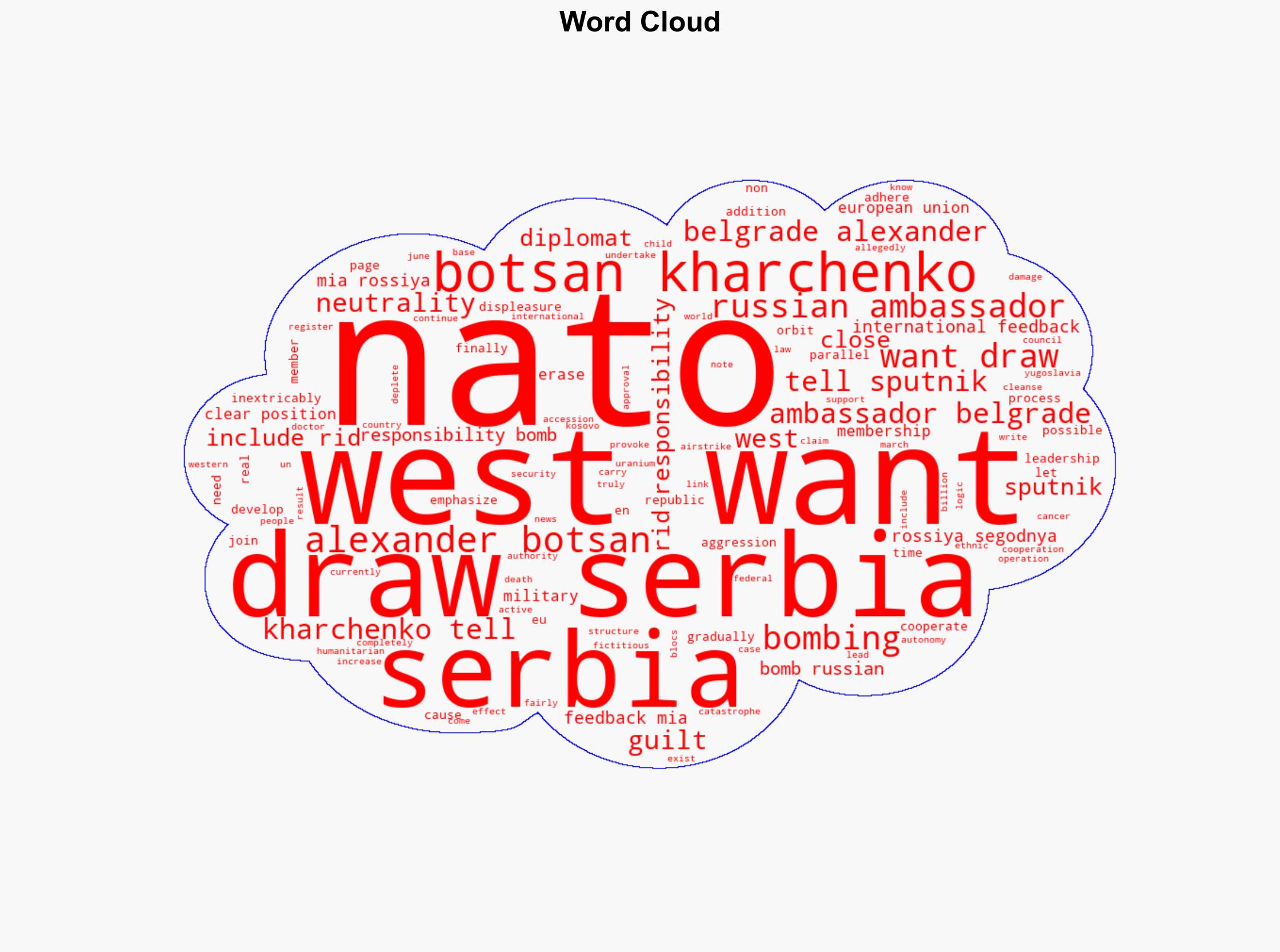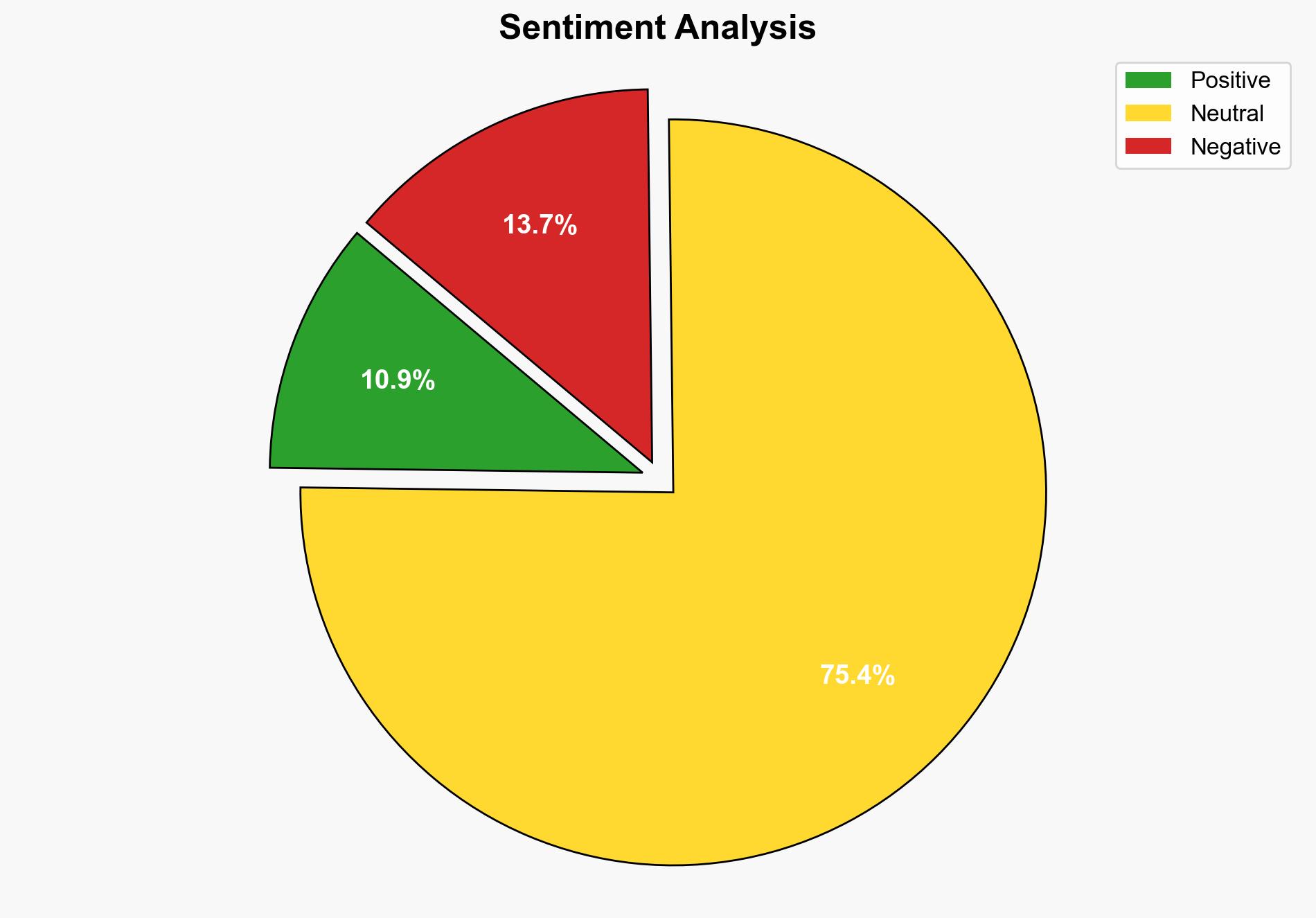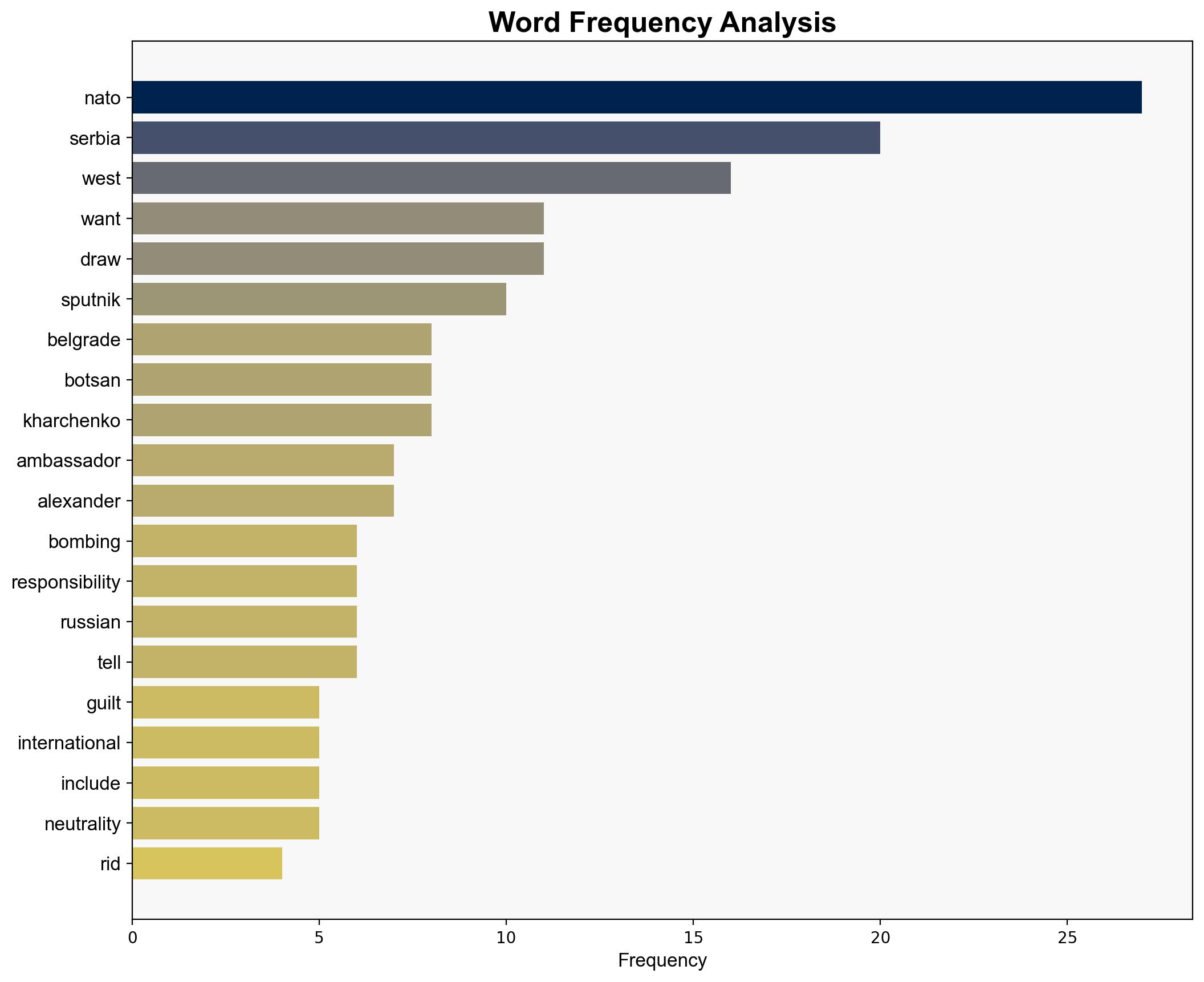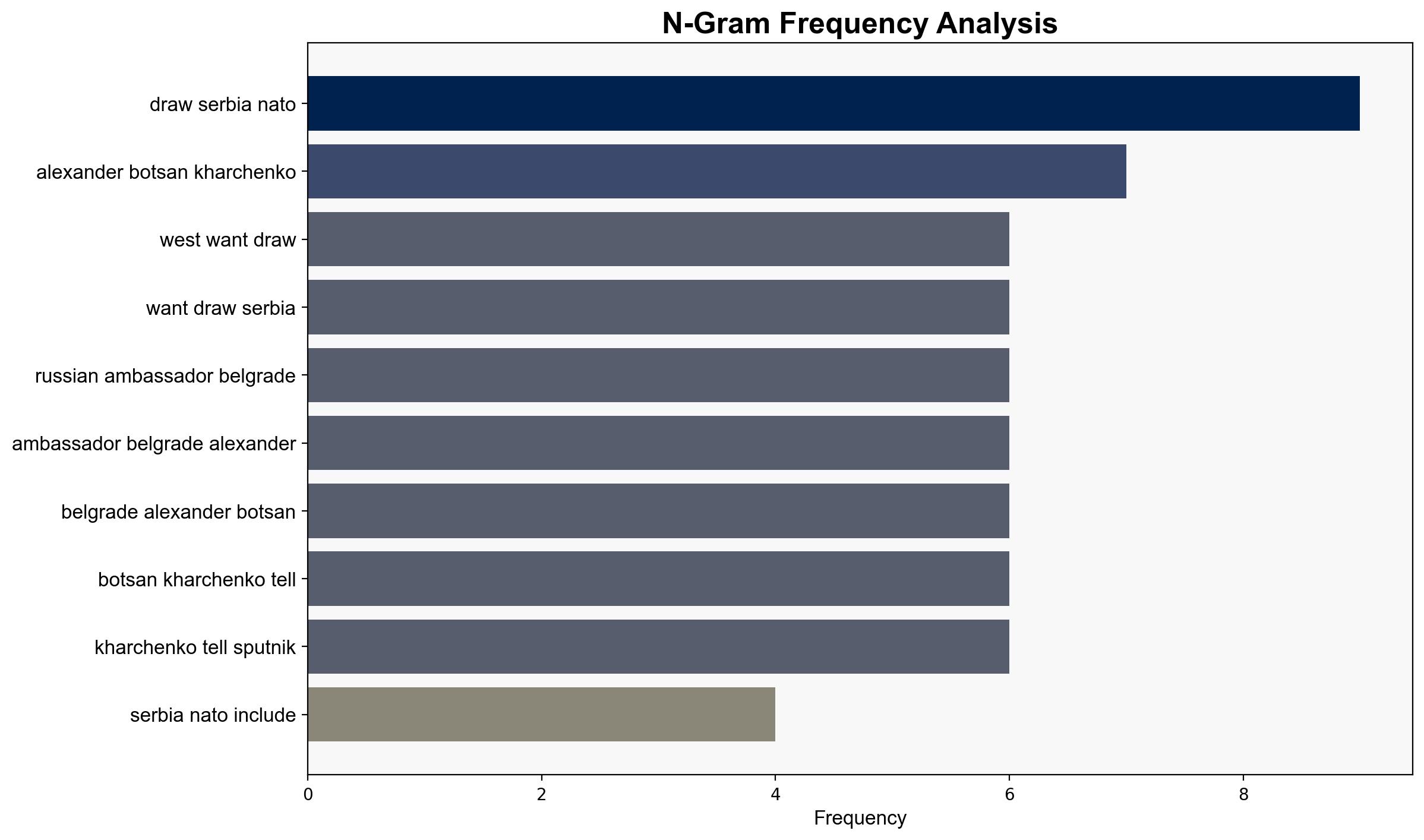West Wants Guilt for 1999 Bombings Erased by Drawing Serbia Into NATO – Sputnikglobe.com
Published on: 2025-08-24
Intelligence Report: West Wants Guilt for 1999 Bombings Erased by Drawing Serbia Into NATO – Sputnikglobe.com
1. BLUF (Bottom Line Up Front)
The most supported hypothesis is that the West aims to integrate Serbia into NATO and the EU to stabilize the region and counter Russian influence, rather than solely to erase guilt for the 1999 bombings. Confidence level: Moderate. Recommended action: Monitor diplomatic engagements between Serbia, NATO, and the EU, and assess shifts in Serbia’s foreign policy stance.
2. Competing Hypotheses
1. **Hypothesis A**: The West seeks to draw Serbia into NATO and the EU primarily to erase guilt for the 1999 bombings, as suggested by Russian Ambassador Alexander Botsan-Kharchenko.
2. **Hypothesis B**: The West’s primary objective is to integrate Serbia into NATO and the EU to enhance regional stability and counterbalance Russian influence, with erasing guilt being a secondary or rhetorical aspect.
Using ACH 2.0, Hypothesis B is better supported due to historical patterns of NATO expansion aimed at geopolitical stability and reducing Russian influence in Eastern Europe. The emphasis on guilt erasure appears more as a narrative device rather than a strategic objective.
3. Key Assumptions and Red Flags
– **Assumptions**: Hypothesis A assumes that guilt erasure is a significant motivator for Western policy, which may overestimate the impact of historical narratives on current strategic decisions. Hypothesis B assumes that geopolitical stability and countering Russian influence are the primary drivers.
– **Red Flags**: The source’s potential bias, given its Russian origin, may skew interpretations towards portraying Western actions negatively. The repetitive emphasis on guilt suggests a narrative construction rather than a factual basis.
4. Implications and Strategic Risks
– **Geopolitical**: Successful integration of Serbia into NATO and the EU could reduce Russian influence in the Balkans, potentially leading to increased tensions between Russia and the West.
– **Economic**: Serbia’s alignment with Western institutions could open new economic opportunities but may also strain relations with Russia, affecting energy and trade.
– **Psychological**: The narrative of guilt erasure could be used to fuel anti-Western sentiment within Serbia, complicating diplomatic efforts.
5. Recommendations and Outlook
- Engage in diplomatic dialogues with Serbia to understand its stance and address concerns about neutrality and historical grievances.
- Monitor Russian media narratives to anticipate potential propaganda efforts that could influence public opinion in Serbia.
- Scenario Projections:
- Best: Serbia joins NATO and the EU, enhancing regional stability and reducing Russian influence.
- Worst: Increased tensions lead to a regional security dilemma, with Serbia caught between Western and Russian interests.
- Most Likely: Serbia maintains a neutral stance while incrementally increasing cooperation with NATO and the EU.
6. Key Individuals and Entities
– Alexander Botsan-Kharchenko
– NATO
– European Union
– Serbia
7. Thematic Tags
national security threats, geopolitical strategy, regional stability, NATO expansion





